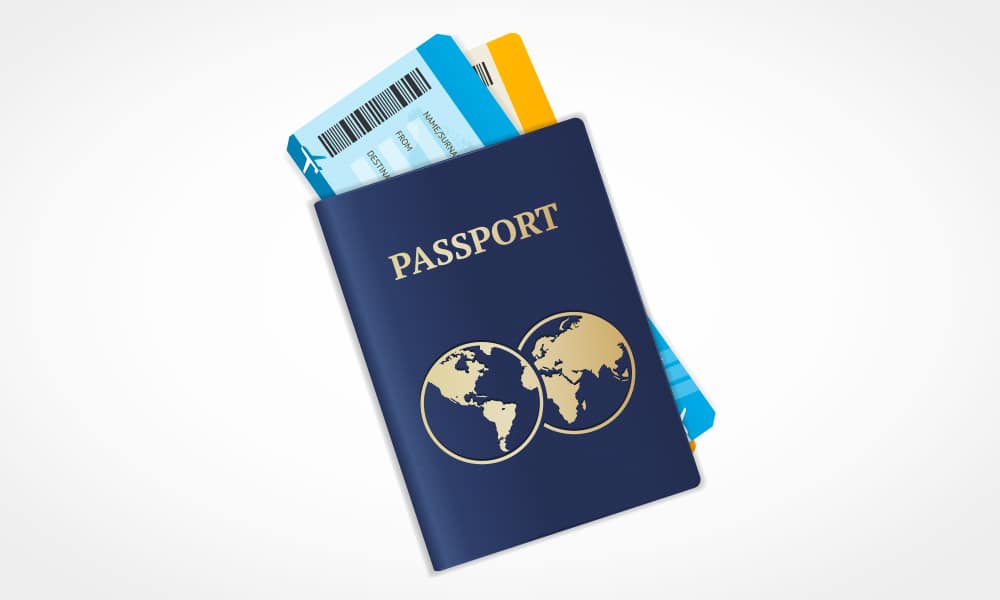


Does any of the traveller have any pre-existing medical condition like BP, diabetes etc? See what it means ›
Now covers COVID-19
Things to Know Before Visiting China
China is a vast country rich in culture and history, offering ancient traditions with modern advancements. For Indian nationals planning a visit, there are crucial things to know before visiting China. These will help you understand local customs, laws, and travel requirements to avoid misunderstandings and enhance your travel experience. Knowing these essentials, from visa guidelines to health precautions, will ensure a smooth journey.
Travel Insurance Plans on PolicyBazaar#1
- Individuals
- Sr. Citizens
- Students
China at a Glance!
In 2023, more than 180,000 Indian citizens were issued visas to visit China. This reflects the ongoing travel and business interactions between the two countries. As more people from India are expected to follow in the future, this section provides key things to know before travelling to China. Below is the information every traveller should be familiar with before visiting the country:
| Categories | Specification |
| Major Airports | ✅ Beijing Capital International Airport (PEK) ✅ Shanghai Pudong International Airport (PVG) |
| IDL Requirement for Tourists | ✅ An International Driving License (IDL) is not required, and driving is generally not recommended for tourists because of the complexities of local traffic conditions and the abundance of reliable public transport. |
| Minimum Budget for 1 Person | ✅ INR 2,500- INR 5,000 per day, covering accommodation, meals, and activities. |
| Average Temperature | ✅ Temperature varies greatly, ranging from -10°C to 35°C, depending on the region. Northern areas experience colder winters than the south. |
| Best Time to Visit | ✅ The ideal times to visit are March to May and September to November, offering favourable weather for travel. |
| Driving Side | ✅ Vehicles in China drive on the right side of the road. |
China Visa Requirements for Indians
Indian citizens must obtain a visa before entering China, with the Tourist Visa (L) being the most common form of travel. This visa allows you to stay in China for up to 30 days. To apply, complete the visa application form available on the Chinese Visa Application Service Centre.
Your application should include the following:
- Valid Passport: Must have a passport at least six months of validity and two blank pages.
- Recent Passport-Sized Photograph: Two colour photos (48mm x 33mm) taken within the last six months.
- Proof of Accommodation: Hotel bookings or an invitation letter from a host in China.
- Flight Itinerary: Confirmed round-trip tickets.
- Financial Proof: Bank statements showing sufficient funds for the duration of the stay.
Once your documents are ready, submit your application to the nearest Chinese embassy or consulate in India or online at its website. Visa processing usually takes around 4-5 working days.
The visa fee ranges from approximately INR 2,400 to INR 3,900, depending on the type and length of stay, broken down as follows:
- Single Entry: INR 3900 approx.
- Double Entry: INR 5850 approx.
- Half-Year Multiple Entry: INR 7800 approx.
- One-Year Multiple Entry: INR 11700 approx.
- Group Visa/ per person: INR 2400 approx.
- Official Group Visa/ per person: INR 2400 approx.
7 Things to Know About China
When planning a trip to China, a few key details will make your journey smoother and more enjoyable. From navigating the language barrier to understanding local etiquette, these things to know before going to China will help you avoid common pitfalls and fully immerse yourself in the culture.
-
The Chinese Are Incredibly Superstitions
China's rich cultural heritage has many unique superstitions that play a significant role in daily life. For example, the number 4 is often avoided because it sounds similar to the word for "death" in Mandarin. Tourists should be mindful of such beliefs, particularly when giving gifts or engaging in local customs. For instance, avoid gifting items in four sets to prevent discomfort or offence. These small gestures of understanding can go a long way in showing respect for local traditions.
-
There Are Do's and Don'ts for Public Transport
China's public transportation system is fast and efficient but has its own set of unwritten rules. To blend in with locals, let passengers exit before boarding, keep conversations quiet, and avoid public displays of affection, which are generally frowned upon. Understanding these social cues will make your journey smoother, especially during crowded peak hours.
Downloading transport apps in advance will also help with navigation and buying tickets, making your experience even more accessible.
-
Respect Local Customs and Be Culturally Sensitive
Respect for local customs is crucial in China, where cultural sensitivity and politeness are deeply valued. Tourists should avoid discussing sensitive topics like politics or religion and be mindful when visiting temples or historical sites by dressing modestly.
Simple gestures like greeting people with a slight bow and following local etiquette can make a big difference in how you're received. By embracing these customs, you'll enjoy a more meaningful experience and build positive connections with the people you meet.
-
When to Tip for Services in China
Tipping in China is quite different from Western practices and is often unnecessary. Tipping can sometimes be considered rude, as service charges are typically included in bills at restaurants and hotels. However, in tourist-heavy areas or upscale restaurants, rounding up your bill or adding a few yuan might be appreciated, though it's not expected.
Tipping taxi drivers is rare, but hotel staff may accept small gratuities for excellent service. Understanding these tipping customs helps you navigate situations respectfully while avoiding awkward moments.
-
Dining in Respectful Silence is The Norm
When dining in China, you'll quickly notice a distinct calm atmosphere. Unlike Western customs, where chatter fills the air, meals in China are often marked by respectful quietness. Diners tend to focus on their food, emphasising appreciation over conversation.
-
Despite the Crowding, There's Appreciation of Personal Space
While personal space in China may feel somewhat limited, there is a shared understanding of respect for boundaries among individuals. Navigating crowded areas like subways and markets is vital without pushing in line or invading someone's personal space.
Initially, this adjustment might feel challenging, but staying composed and observant will help you adapt. By watching how locals manage their interactions, you can learn to navigate the hustle and bustle while maintaining politeness.
-
The Giving of Business Cards is an Important Part of Business Etiquette
In Chinese culture, exchanging business cards is more than just a formality; it is a ritual filled with significance. When participating in professional settings, always present and receive cards with both hands, signalling respect and attentiveness.
Take a moment to read the card carefully before putting it away, as this gesture reflects gratitude and acknowledges the individual's importance. Avoid the common mistake of stashing it away without a glance, as it may come off as disrespectful.
Travel Tips for China
Before heading off on your adventure, there are a few key things to know before visiting China that will make the trip much more accessible. Here's a quick breakdown to prepare you to explore everything China offers.
-
Payment Methods
When travelling in China, it is wise to carry cash in Chinese Yuan (CNY) for smaller purchases at local markets or street vendors. Meanwhile, larger establishments like hotels and restaurants typically accept credit cards. Mobile payment apps like WeChat Pay and Alipay are top-rated, but setting them up may require a local bank account. Thus, a little cash can go a long way in enhancing your shopping and dining experiences.
-
Wi-Fi Availability
Wi-Fi is generally accessible at hotels, making it easy to stay connected. However, public networks often require a local phone number for access, which can be challenging for international travellers. Tourists can buy a local SIM card with a passport, though it may take some time. Alternatively, eSIMs are a convenient option to set up online before arrival, providing instant connectivity without needing local registration. To avoid connectivity issues, consider downloading essential maps and apps beforehand. To stay connected with people in India, consider downloading a VPN to use WhatsApp.
-
Emergency Contacts
Understanding emergency contacts in China is vital for your safety and peace of mind during your visit. For police assistance, you can quickly dial 110, while medical emergencies require you to call 120. It is a good idea to jot down these numbers and keep them handy, perhaps even saved on your phone. Awareness of these contacts ensures you can access help swiftly in any situation, allowing you to enjoy your trip confidently.
-
Time Zone Differences
China operates on a single time zone, China Standard Time (CST), GMT+8. This means that regardless of where you are in the country, the time remains consistent, making it easier to plan your activities. However, if you're travelling from India, you are bound to cross time zones since CST is 2 hours and 30 minutes ahead of IST. One of the most helpful things to do before going to China is to set your CST time to ensure you do not get the timings of events wrong.
-
Health Regulations
Before travelling, check health advisories, mainly due to ongoing concerns related to COVID-19. You may need to submit health forms or undergo medical screenings upon arrival. Quarantine measures could apply, depending on your travel history.
-
How to Overcome Language Barriers
Navigating the language barrier in China can be challenging, especially in areas outside major cities like Beijing and Shanghai. While some signage and locals may speak English, it is not widely understood nationwide. To make things smoother, learning basic Mandarin phrases or using translation apps like Google Translate or Pleco can be incredibly helpful.
-
Travel Insurance
One of the most essential things to do before visiting China is to purchase travel insurance. With the unpredictability of travel, insurance safeguards against unexpected events, such as trip cancellations, medical emergencies, or lost luggage. In a vast country like China, healthcare systems may differ from what you're accustomed to in some areas, and coverage ensures you're protected.
FAQs
-
Q1: What are the most well-known attractions in China?
Ans: Major cities like Beijing and Shanghai are must-visits. In Beijing, you can explore iconic landmarks such as the Forbidden City and the Great Wall, while Shanghai offers a vibrant skyline and cultural attractions like the Yu Garden. Other noteworthy sites include Xi'an, famous for the Terracotta Warriors, and Guilin, known for its stunning landscapes. -
Q2: What are some must-try street foods in China?
Ans: Roasted sweet potatoes (kao hongshu) are a beloved snack in China. Eating roasted and salted sunflower seeds is almost a national pastime, and they are commonly found at convenience stores and street vendors. -
Q3: Is it safe for visitors to travel alone in China?
Ans: Travelling alone in China is generally safe for visitors as long as they stay vigilant and follow common-sense safety practices. Major cities are equipped with surveillance cameras and have a strong police presence, contributing to a sense of security. -
Q4: What are some of the lesser-known customs in China that tourists should know?
Ans: Addressing individuals by their titles or surnames is standard practice, and when dining, wait for the host to start eating before you begin your meal. It is also polite to avoid discussing sensitive topics such as politics or religion unless initiated by locals.
STANDARD TERMS AND CONDITIONS APPLY. For more details on risk factors, terms, and conditions, please read the sales brochure carefully before concluding a sale.
Policybazaar Insurance Brokers Private Limited, Registered Office - Plot No.119, Sector - 44, Gurgaon, Haryana - 122001 | CIN: U74999HR2014PTC053454 | Policybazaar is registered as a Composite Broker | Registration No. 742, Valid till 09/06/2027 | License category - Composite Broker | Contact Us | Legal and Admin Policies
* Price shown is for a 30 day trip to China with 50,000 dollar coverage for an adult of age 25 years



















































